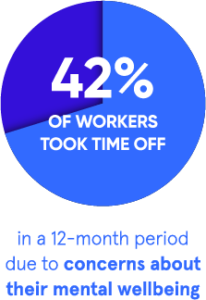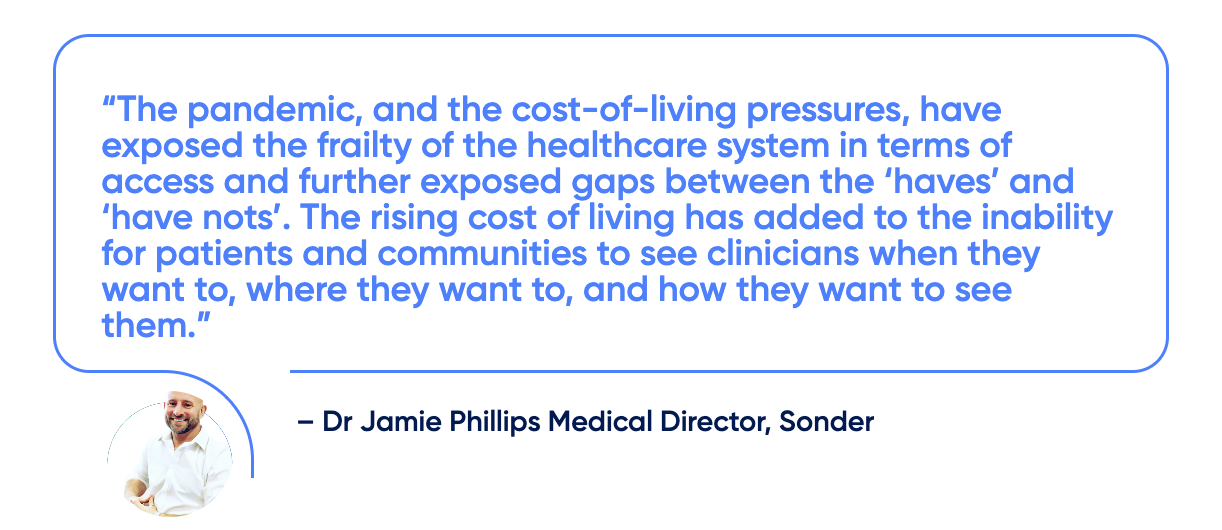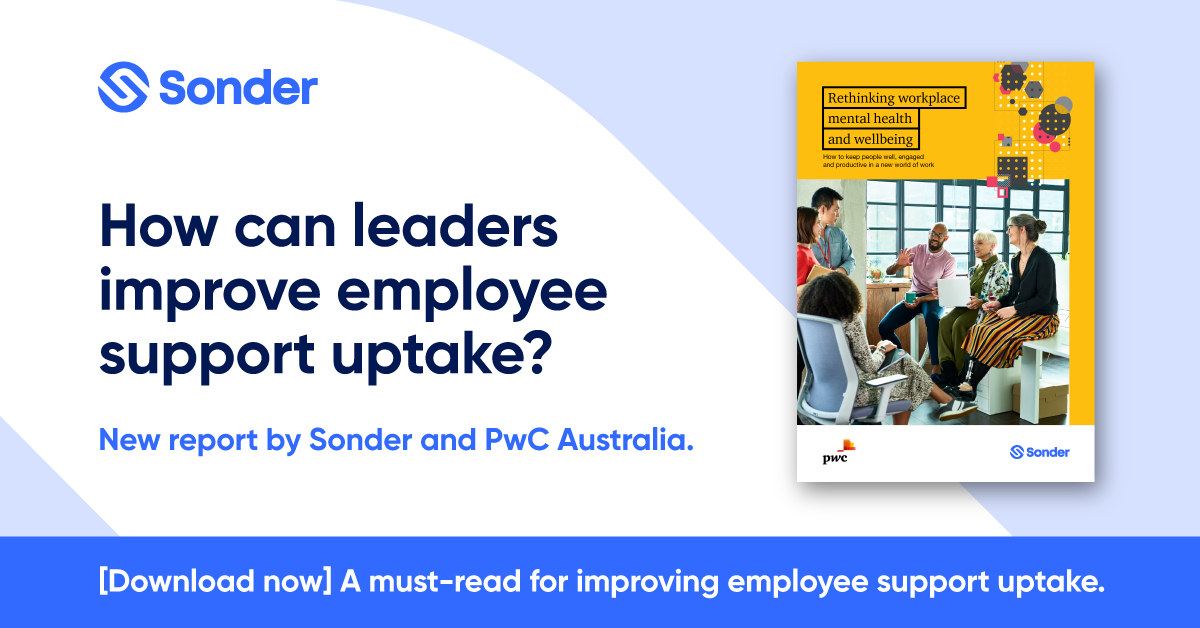With interest rates continuing to rise, Australia’s cost-of-living pressures show no signs of abating. Workers are making impossible financial compromises to the detriment of their overall health and wellbeing, which is further lifting the lid on a workforce in physical and psychological distress. For example, the latest census statistics reveal more than eight million Australians have a long-term health condition, with mental health issues surpassing every other chronic illness.
Official government statistics make for confronting reading and further expose the economic fragility of Australian workers. Fuel, food and energy prices continue to soar, as families struggle to make ends meet.
Financial insecurity and worker ill health
The link between mental, financial, and physical wellbeing is well documented. A recent Australian study found that COVID-19 – and its disruption to our social world and financial stability – was a primary cause of mental health distress. This was backed up by an earlier study published by the British Psychological Society which found that money worries had a potential impact on worker health due to “increased work-family conflict and stress associated with financial insecurity.”
Dr Jamie Phillips, Sonder’s Medical Director and a practising emergency department physician is acutely aware of the difficult compromises that employees are making to the detriment of their overall health.

In addition to the mental health effects of financial insecurity are the physical health implications of workers missing vital medical appointments or not filling their prescriptions due to out-of-pocket costs.
Dr Phillips cautions that financial insecurity has broad implications for individuals, their families, their employers, their communities, and the wider society.

Wellbeing survey results
A Sonder-commissioned Australian survey confirmed that employee concerns about mental wellbeing are affecting workplace attendance rates. But, skipping work (to rest and ‘get well’) can in turn exacerbate financial insecurity and mental wellbeing concerns.
We partnered with McGregor Tan to survey 1,025 people working a minimum of 20 hours per week and found that 42 per cent of workers reported taking time off work in a 12-month period due to concerns about their mental wellbeing. Another quarter (26 per cent) of respondents reported taking time off work in the same period due to concerns about the mental wellbeing of their friends or family.


The survey also highlighted gaps in wellbeing support for employees who worked casually or part-time. Respondents who worked part-time or casually were more likely to feel uncomfortable talking to their manager about mental wellbeing (43 per cent), compared with 31 per cent of respondents who worked full-time.
Employer duty of care
The release last year of ISO 45003, and the subsequent spotlight on workplace psychological health and safety, was a timely reminder that organisations need to take joint responsibility for the mental health of their employees. This is especially true in the new world of remote and hybrid work, where the lines between work life and home life are blurred, and employees expect more from their employers.
The new international standard makes it even clearer that psychological wellbeing, safety, and health are best managed holistically. ISO 45003 describes workplace wellbeing as “fulfilling the physical, mental, social, and cognitive needs and expectations of workers”. According to the standard, these needs and expectations can include financial security.
Barriers to accessing support
A complex healthcare system
According to Dr. Phillips, the current system is complex and people aren’t getting the help they need.

Citing the latest government report on Australia’s mental health services, Dr Phillips argues that there is a pressing need to invest in more personalised, holistic, and preventative care.
“The report highlights a lack of capability among both generalist and specialist healthcare staff to deal with complex comorbidities. A holistic approach that considers a person’s cognitive, emotional, social, physical, financial, and spiritual wellbeing at all times is clearly needed,” he said.
Overcoming barriers to workplace wellbeing
Significant gaps in traditional approaches to employee wellbeing support can also mean that workers aren’t getting the help they need.
Our survey shows that just 18 per cent of employees (who are aware of their workplace’s mental wellbeing programs) understand all of the programs available.
Low employee uptake of workplace mental health support has largely been accepted with minimal inquiry. But an increasing number of forward-thinking organisations are asking why their employee support programs have as low as a five per cent uptake, as well as how they can enact their duty of care to meet contemporary employee demands.
Our joint report with PwC Australia, Rethinking workplace mental health and wellbeing, found that low uptake of traditional workplace mental health support programs is often due to three reasons:
- It’s not built into the culture
- Due to lack of awareness, accessibility issues, stigma, and/or discrimination;
- Solutions are not the right fit
- Prevention and early intervention are the key, along with ‘anytime/anywhere’ support when help is needed; and
- Poor past experiences
- Due to quality concerns, privacy concerns, and/or delays in care.

Actions
Money worries can be hard to talk about and there is often a stigma that prevents people from seeking support. As an employer, here are some steps you can take to help your team members get the support they need when experiencing cost-of-living pressures:
Actions
- Embrace your responsibility for the health and safety of your people
- Consider holistic approaches to employee wellbeing support that focus on mental health, personal and workplace safety, medical assistance, and financial support pathways
- Foster open, regular, and meaningful discussions about wellbeing
- Combine digital self-help with 24/7 human support to encourage help-seeking behaviour
- Focus on evidence-based solutions and resist employee wellbeing myths
- Practice empathy – be real, be genuine, and care
- Know your limits – no one expects managers to be mental health experts
Looking for an EAP alternative?
Here’s why you might choose Sonder for your workplace safety, medical, and mental health support.
About Sonder is a technology company that helps organisations improve the wellbeing of their people so they perform at their best. Our mobile app provides immediate, 24/7 support from a team of safety, medical, and mental health professionals – plus onsite help for time-sensitive scenarios. Accredited by the Australian Council on Healthcare Standards (ACHS), our platform gives leaders the insights they need to act on tomorrow’s wellbeing challenges today.



